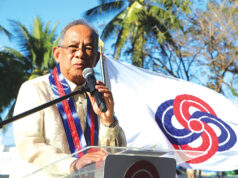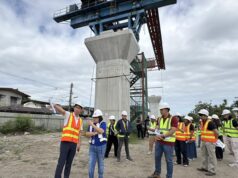We find ways. BDO Unibank reported a net income of ₱40.6 billion in the first half of 2025, up 3% from ₱39.4 billion last year.
Highlights:
- Earnings growth sustained, driven by strong performance of core businesses, tempered by investments in market coverage and improving capacity for operational efficiency
- Gross loans expanded by 14% on double-digit growth across all segments
- NPL ratio lower at 1.75% with NPL coverage stable at 140%
- Capital ratio at 15.4%; Book Value Per Share up by 12% to ₱113.04
BDO Unibank, Inc. (BDO) generated a net income of ₱40.6 billion in 1H 2025, up 3% from ₱39.4 billion last year, driven by strong performance from its core businesses. Earnings growth was tempered by the continuing investments in market coverage and IT spending for operational efficiency. Return on Average Common Equity (ROCE) stood at 13.9% for the period.
Net Interest Income increased by 7% as Gross Customer Loans climbed by 14% to ₱3.4 trillion, with broad-based growth across all market segments. Deposits also expanded by 8% to breach ₱4.0 trillion, with a Current Account/Savings Account (CASA) ratio of 69%.
Non-interest income grew by 15%, driven by the significant contributions from fee-based income and income from insurance operations.
Asset quality improved further, with Non-Performing Loan (NPL) ratio lower at 1.75%, and NPL coverage at 140%.
Shareholders’ equity strengthened by 12% on the back of profitable operations, with Book Value Per Share up by 12% to ₱113.04. The Bank’s Capital Ratio remained strong at 15.4%.
The Bank is set to issue its fourth ASEAN Sustainability Bonds on July 29, 2025 with a minimum aggregate issue size of ₱5 billion. Originally set to run from July 9 to 22, 2025, the strong demand from both retail and institutional investors prompted the early closing of the offer on July 14, 2025. The net proceeds will be used to finance and/or refinance eligible projects and further support the growth of the Bank’s sustainable portfolio.
Amid global uncertainties arising from geopolitical tensions and the imposition of US tariffs, the Philippines is expected to remain resilient, supported by its consumer-driven economy and sustained domestic demand. Likewise, the Bank remains well-positioned to manage emerging risks and capitalize on opportunities given its robust capital base and diversified business franchise.





